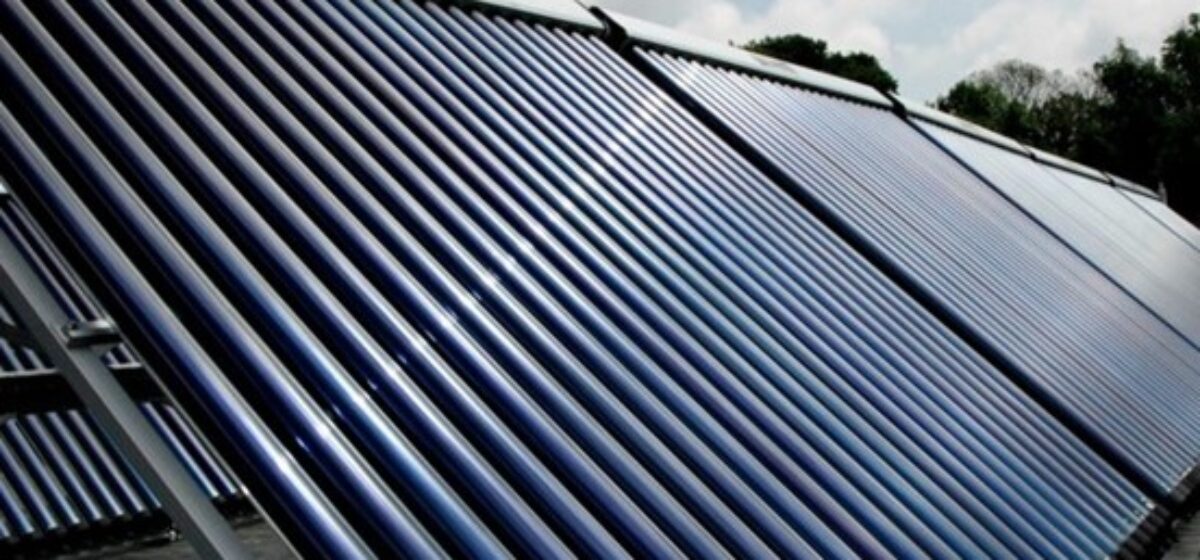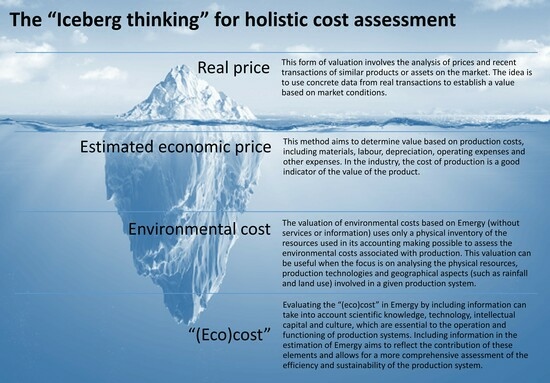The depreciation life of a water heater varies depending on the type and usage, but it is generally considered to have a useful life of about 10 to 15 years. Replacing a water heater in rental property may be considered a capital improvement rather than a repair, and it can be depreciated over several years.
However, whether it qualifies for bonus depreciation or is classified as a fixed asset depends on factors such as its integration into the building’s systems. Other building components, like HVAC equipment, refrigerators, and pool heaters, also have their own depreciation lives and classifications.
Water Heater Depreciation Basics
Water heater depreciation is a crucial aspect to consider when it comes to the life expectancy of this essential appliance. It impacts rental property owners who must decide whether to treat water heater replacement as a repair or a capital improvement.
Understanding the correct way to depreciate a water heater is important for tax purposes.
Understanding the depreciation life of your water heater is essential for property owners and investors alike. Knowing the basics of water heater depreciation can help you accurately assess the value of your asset, make informed decisions about repairs or replacements, and ensure compliance with IRS guidelines. In this section, we will explore the importance of knowing depreciation life, familiarize ourselves with the IRS guidelines for water heater classification, and differentiate depreciation from immediate write-offs.
Importance Of Knowing Depreciation Life
Knowing the depreciation life of your water heater is crucial for proper accounting and financial planning. The depreciation life determines the period over which the cost of the water heater can be spread out for tax purposes. By understanding how long your water heater is expected to last, you can allocate expenses and optimize your tax benefits accordingly.
Additionally, knowing the depreciation life helps you make informed decisions about repairs and replacements. If your water heater is nearing the end of its depreciable life, you might want to consider replacing it rather than investing in costly repairs. On the other hand, if the depreciation life has not yet been reached, repairing the water heater might be a more cost-effective solution.
Irs Guidelines For Water Heater Classification
The IRS provides guidelines for classifying assets, including water heaters, for tax purposes. According to these guidelines, water heaters are classified as “5-year property” under the Modified Accelerated Cost Recovery System (MACRS). This means that the cost of the water heater can be recovered over a period of five years through annual depreciation deductions.
The IRS further clarifies that the classification of the water heater depends on its role within the property. If the water heater is considered a structural component, such as being built-in or permanently affixed to the property, it is classified as a “fixed asset.” However, if the water heater is portable and not permanently attached, it may be considered a “movable asset.”
Depreciation Vs. Immediate Write-off
It’s important to differentiate depreciation from immediate write-offs when it comes to water heaters. Depreciation allows you to deduct the cost of the water heater over its depreciable life, typically five years. On the other hand, immediate write-offs, also known as “Section 179 deductions,” allow you to deduct the full cost of the water heater in the year it was placed in service.
While an immediate write-off may seem more advantageous, it’s crucial to consider the financial impact and long-term tax planning. Depending on your specific circumstances, depreciation may provide a more beneficial tax strategy, allowing you to spread out the deductions over multiple years and potentially reducing your overall tax liability.
By understanding the basics of water heater depreciation, you can make informed decisions about repairs, replacements, and tax planning. Knowing the depreciation life of your water heater and adhering to IRS guidelines ensures accurate accounting and maximizes your tax benefits. Whether you’re a property owner or an investor, staying informed about water heater depreciation is essential for maintaining financial health and compliance.
Maximizing Lifespan And Value
Regular maintenance tips
Regular maintenance is a key factor in maximizing the lifespan and value of your water heater. By taking care of your water heater, you can prevent premature breakdowns and extend its functional life. Here are some essential maintenance tips to follow:
- Drain and flush your water heater at least once a year to remove sediment buildup.
- Check the temperature and pressure relief valve regularly to ensure it is functioning correctly.
- Inspect the anode rod every 2-3 years and replace it if it is worn out. The anode rod helps prevent corrosion.
- Keep the area around your water heater clean and free of debris to ensure proper airflow.
- Consider insulating your water heater and pipes to improve energy efficiency.
Advancements in water heater technology
Advancements in water heater technology have made it possible to improve efficiency, reliability, and performance. If you are considering replacing your old water heater, it is worth exploring the latest options available in the market. Here are some notable advancements in water heater technology:
- Tankless Water Heaters: These units heat water on demand, eliminating the need for a storage tank. They are more energy-efficient and provide a continuous supply of hot water.
- Heat Pump Water Heaters: These units use electricity to move heat from the air or ground to heat the water. They are highly energy-efficient and can save you money on your utility bills.
- Solar Water Heaters: These systems use solar energy to heat water. They are environmentally friendly and can significantly reduce your energy costs.
- Smart Water Heaters: These units can be controlled and monitored remotely through a smartphone app. They offer convenience and allow you to adjust settings to optimize energy usage.
Choosing quality over cost
When it comes to water heaters, it is essential to prioritize quality over cost. Investing in a high-quality water heater can save you money in the long run by reducing energy consumption and maintenance requirements. Here are some reasons why you should choose quality:
- Durability: High-quality water heaters are built to last, ensuring a longer lifespan and fewer repair or replacement needs.
- Efficiency: Energy-efficient water heaters consume less electricity or gas, resulting in lower utility bills.
- Reliability: Quality water heaters are less likely to experience frequent breakdowns, providing peace of mind and uninterrupted hot water supply.
- Warranty: Manufacturers of quality water heaters often provide longer warranties, protecting your investment.
Remember, a water heater is an essential appliance in your home, and making the right choice can have a significant impact on your comfort and expenses. Consider your household needs, energy efficiency requirements, and long-term savings when selecting a water heater.
Depreciation Implications For Property Owners
The depreciation implications for property owners include understanding the water heater depreciation life. It is important to determine whether to treat water heater replacement as a repair or depreciate it as an expense. Differentiating between maintenance/repair and capital improvement can have tax implications for rental properties.
Impact On Rental Property Taxation
When it comes to rental properties, water heater depreciation can have significant implications for property owners. The IRS allows property owners to deduct the cost of depreciation on certain assets, including water heaters, as a way to recoup the expense of wear and tear over time. This depreciation can have a direct impact on rental property taxation, affecting the property owner’s bottom line.
Capital Improvements Vs. Repairs
Understanding the difference between capital improvements and repairs is crucial when considering water heater depreciation for rental properties. Capital improvements are significant upgrades or additions to a property that enhance its value, such as replacing an old water heater with a more energy-efficient model. Repairs, on the other hand, are minor fixes or replacements that restore the property to its original condition, like fixing a leak in the water heater.
It’s essential for property owners to correctly categorize the expense to determine whether it should be treated as a capital improvement or a repair. Capital improvements can be depreciated over time, while repairs may be deductible in the year they are incurred. This distinction is critical for accurately calculating the water heater’s depreciation and the corresponding tax benefits.
Depreciation Methods For Water Heaters
When it comes to depreciation methods for water heaters, property owners have several options to choose from. The most commonly used method is the Modified Accelerated Cost Recovery System (MACRS), which divides the cost of the water heater into specific recovery periods based on its assigned class life.
According to the IRS, residential water heaters are typically assigned a class life of 27.5 years, meaning they can be depreciated over this period. Property owners can choose to use the straight-line method, deducting an equal amount of depreciation each year, or the declining balance method, which allows for higher deductions in the earlier years of ownership.
It’s important for property owners to consult with a tax professional or utilize reliable tax software to ensure they are using the correct depreciation method for their water heater. By accurately depreciating their water heater, property owners can take advantage of the tax benefits associated with rental property ownership and maximize their return on investment.

Credit: www.nv5.com
Extending Water Heater Service Life
Extend the service life of your water heater by implementing proper maintenance practices. Regularly flushing the tank, checking the anode rod, and insulating the unit can help prevent depreciation and costly replacements in the long run.
Signs Of Water Heater Wear And Aging
Over time, a water heater may start exhibiting signs of wear and aging. Recognizing these signs is crucial to prevent complete breakdowns and costly repairs. Some common signs of water heater wear include:
- Insufficient hot water supply
- Inconsistent water temperature
- Strange noises
- Visible leaks or water pooling around the tank
- Rusty water
- Excessive energy consumption
- Age of the water heater (typically more than 10 years)
If you notice any of these signs, it’s essential to take prompt action to prevent further damage or potential hazards.
When To Repair Or Replace
When facing water heater issues, it’s important to determine whether repair or replacement is the appropriate course of action. Consider the following factors before making a decision:
- The extent of damage or wear
- The age of the water heater
- The cost of repairs compared to the cost of a new unit
- The efficiency of the current water heater
If your water heater is relatively new and the damage is minor, repair may be the more cost-effective solution. However, if the unit is old, inefficient, or experiencing significant issues, it may be a wiser decision to replace it with a newer, more energy-efficient model.
Installation Factors Affecting Longevity
Proper installation is essential to maximize the longevity of your water heater. Consider the following factors during installation:
- Location: Ensure the water heater is installed in a well-ventilated area to prevent overheating and potential damage.
- Sizing: Make sure the water heater is appropriately sized to meet the hot water demands of your household. An undersized unit may lead to frequent overheating and premature wear.
- Maintenance: Regular maintenance, including flushing the tank, checking the pressure relief valve, and inspecting the anode rod, can greatly extend the lifespan of your water heater.
By considering these installation factors, you can help ensure your water heater operates efficiently and has an extended service life.
Strategic Financial Planning Around Depreciation
When it comes to water heater depreciation, proper financial planning is crucial for businesses and rental property owners. Strategic planning around depreciation can provide significant tax benefits, ensure accurate accounting practices, and help in optimizing long-term value and cost-saving measures.
Tax Benefits Of Proper Categorization
Proper categorization of water heaters can provide businesses and rental property owners with valuable tax benefits. By treating the water heater as a depreciable asset, it can be deducted over a period of time rather than expensing the full cost in a single year. This can help in reducing taxable income and lowering overall tax liability for the business.
Water Heater Replacement And Business Accounting
When it comes to replacing a water heater in a business or rental property, it is essential to consider the impact on business accounting. If the replacement is considered a repair or maintenance expense, it can be deducted in the year it is incurred. However, if the replacement is categorized as a capital improvement, it should be depreciated over its useful life. Properly categorizing the replacement ensures accurate financial records and compliance with accounting regulations.
Long-term Value And Cost-saving Measures
Optimizing long-term value and implementing cost-saving measures is crucial for businesses and rental property owners. By choosing high-quality water heaters with longer life expectancy, their usefulness can be maximized, resulting in lower replacement costs over time. Additionally, regular maintenance and repairs can help prolong the life of the water heater, reducing the need for frequent replacements and saving on expenses.
Moreover, considering energy-efficient options can provide further cost-saving benefits. Energy-efficient water heaters can lower utility bills, resulting in long-term savings. Additionally, certain energy-efficient water heaters may be eligible for tax incentives or rebates, further enhancing cost-saving measures for businesses and rental property owners.
In conclusion, strategic financial planning around water heater depreciation can have significant benefits for businesses and rental property owners. By understanding the tax benefits of proper categorization, considering the impact on business accounting, and implementing long-term value and cost-saving measures, businesses and rental property owners can optimize their financials and minimize expenses related to water heater replacements.
Frequently Asked Questions For Water Heater Depreciation Life
What Is The Useful Life Of A Water Heater?
The useful life of a water heater varies, but typically ranges from 8 to 12 years.
Does A Hot Water Heater Qualify For Bonus Depreciation?
Yes, a hot water heater qualifies for bonus depreciation.
Is A Hot Water Heater A Fixed Asset?
Yes, a hot water heater is considered a fixed asset.
Can You Take Section 179 On A Water Heater?
Yes, you can take section 179 on a water heater. However, the depreciated value and useful life of a water heater can vary depending on factors such as type, usage, and condition. It is recommended to consult with a tax professional for specific guidance on depreciating a water heater in your situation.
Conclusion
When considering the depreciation life of a water heater, it is important to understand the guidelines and regulations set by tax authorities. While there is no specific depreciation life for water heaters, they are typically considered a fixed asset and can be depreciated over a certain period of time.
The useful life of a water heater can vary depending on factors such as maintenance, usage, and quality. It is crucial to consult with a tax professional to determine the appropriate depreciation method and life for your specific situation.

I am a Water Heater specialist writer and blogger based in the USA & UK. I have been working with Water Heater for six long years. And I give trips on various Water Heater problems and solutions. I have a lot of experience with Water Heater And I share them here

